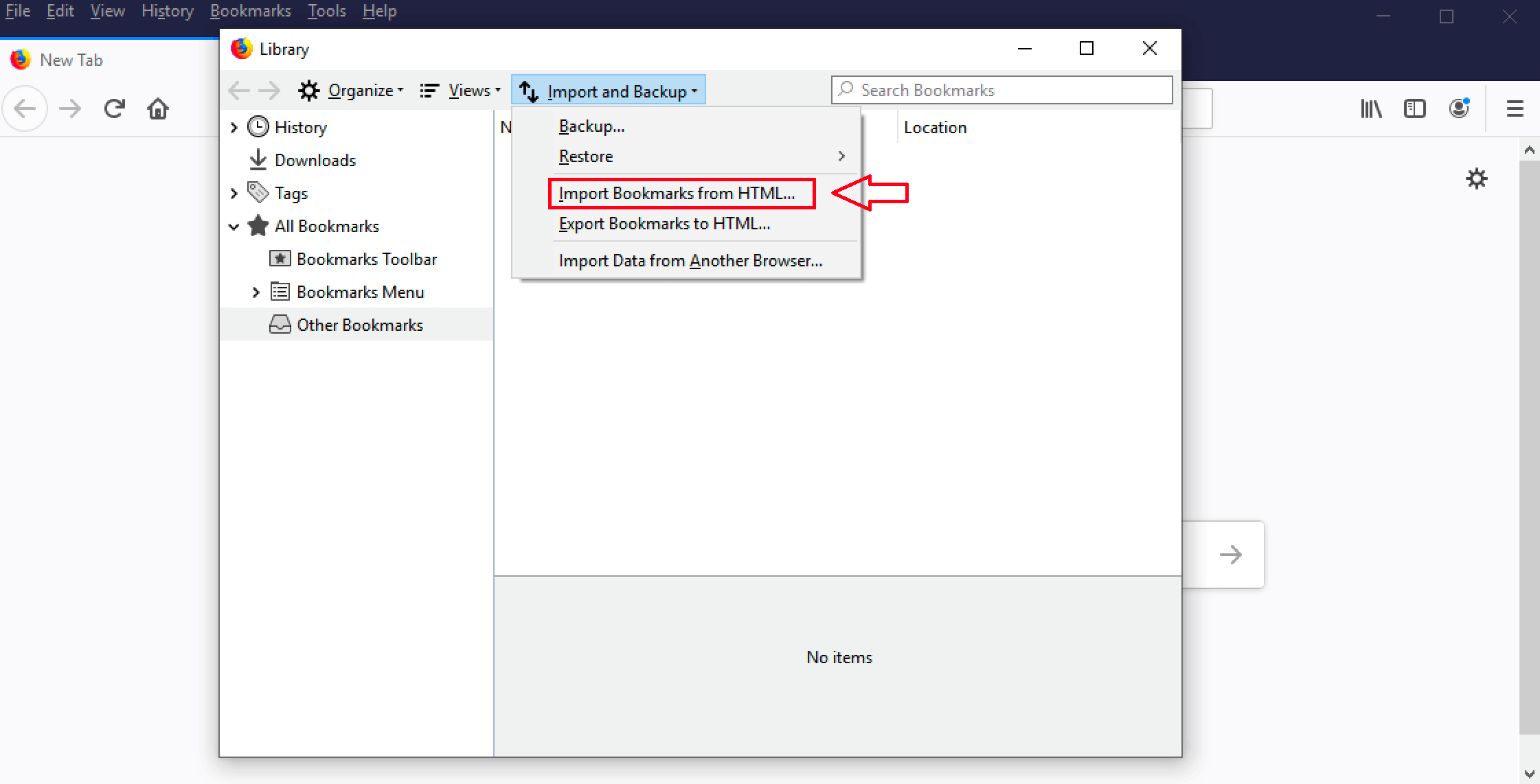

- #Import bookmarks firefox how to#
- #Import bookmarks firefox manual#
- #Import bookmarks firefox download#

#Import bookmarks firefox manual#
NodeJS / CLI: thrilleratplay/node-jsonlz4-decompressįor manual bookmark exporting, there are some nice built-in options.Online tool: Jefferson Scher: “BookBackReader”.jsonlz4 daily backup files are a nice existing backup to take advantage of, but how can we get the files in plain JSON, so we can do whatever we want with their contents (convert to CSV, cleanup, etc.).Įxisting options (found via a quick Google search): Note: You don’t need to convert the files if all you want them for is a backup that you can re-import into Firefox Firefox understands this file format and will let you use it as an import, no conversion required. You can control the file location with config value Ĭonverting the.By changing the config value (in about:config) of to true, you can have Firefox automatically dump a backup of the bookmarks in HTML format, on browser close.jsonlz4 file type, which is JSON compressed with a flavor of the LZ4 algorithm However, these are stored in a somewhat obscure./Profiles//bookmarkbackups should contain daily backups of bookmarks.There are some automated backup options, which essentially output a subset of places.sqlite, with just the bookmarks.In comparison, places.sqlite is updated in almost real-time as you edit bookmarks in Firefox. This will be the most up-to-date stored version of your bookmarks, as the automated backup options (see below) either run periodically, or when the browser shuts down.This makes extraction more difficult, as this is a special database, can you can’t easily copy & paste out of it, or view it, or easily import it into Firefox or other browsers.
#Import bookmarks firefox download#
Bookmarks are contained in place.sqlite, along with download metadata and browsing history.Some key things to note, which affect our task: I’ll supplement this with some additional details below. The best place to get this information is the Mozilla support page – “Where Firefox Stores User Data”. # Example: "C:\Users\Joshua\AppData\Roaming\Mozilla\Firefox\Profiles\fault-release" Researchįirst, let’s investigate how Firefox stores user bookmarks. If you have the basic *nix utilities installed, you can use this one-liner to get the path on Windows: tail "%APPDATA%\Mozilla\Firefox\profiles.ini" -n +2 | head -n 1 | sed -E 's/Default=//' | xargs -I % echo "%APPDATA%\Mozilla\Firefox\%" | sed -E 's/\//\\\/g'
#Import bookmarks firefox how to#
This is the definitive documentation on how to find this folder location. This is a special folder, whose location is unique to your computer due to its use of profile IDs and OS user directories. Pretty much all of your data in Firefox is stored in your profile folder. If you want to jump right to the solutions section, click here, otherwise read on. As such, lately I was thinking I really should set up some sort of backup system, but I had trouble locating any commands or scripts that could accomplish this. I’ve amassed thousands of bookmarks, some of which I have spent time organizing and tagging. I’ve been a long-time Firefox user – for over ten years at this point.


 0 kommentar(er)
0 kommentar(er)
